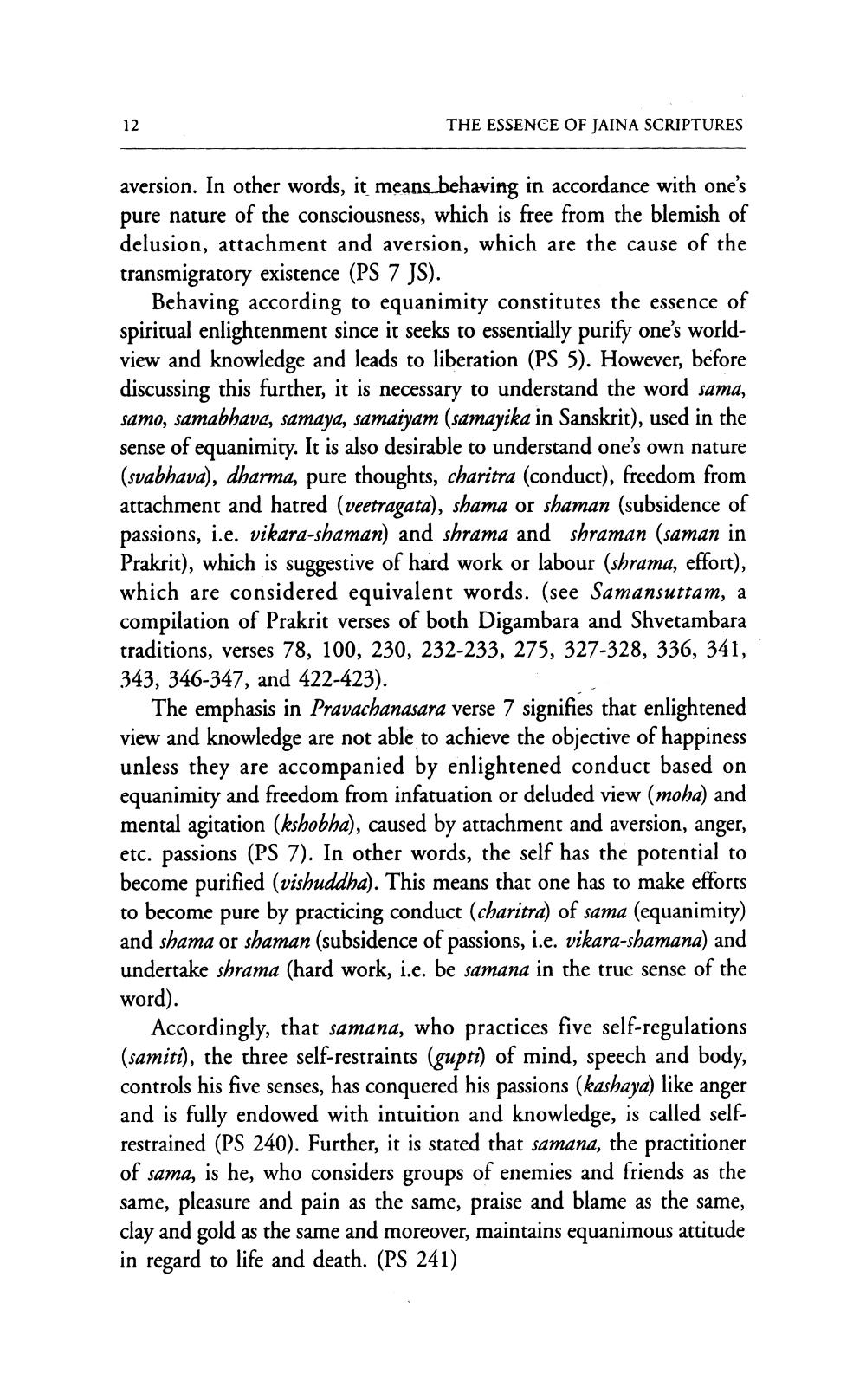________________
12
THE ESSENCE OF JAINA SCRIPTURES
aversion. In other words, it means behaving in accordance with one's pure nature of the consciousness, which is free from the blemish of delusion, attachment and aversion, which are the cause of the transmigratory existence (PS 7 JS).
Behaving according to equanimity constitutes the essence of spiritual enlightenment since it seeks to essentially purify one's worldview and knowledge and leads to liberation (PS 5). However, before discussing this further, it is necessary to understand the word sama, samo, samabhava, samaya, samaiyam (samayika in Sanskrit), used in the sense of equanimity. It is also desirable to understand one's own nature (svabhava), dharma, pure thoughts, charitra (conduct), freedom from attachment and hatred (veetragata), shama or shaman (subsidence of passions, i.e. vikara-shaman) and shrama and shraman (saman in Prakrit), which is suggestive of hard work or labour (shrama, effort), which are considered equivalent words. (see Samansuttam, a compilation of Prakrit verses of both Digambara and Shvetambara traditions, verses 78, 100, 230, 232-233, 275, 327-328, 336, 341, 343, 346-347, and 422-423).
The emphasis in Pravachanasara verse 7 signifies that enlightened view and knowledge are not able to achieve the objective of happiness unless they are accompanied by enlightened conduct based on equanimity and freedom from infatuation or deluded view (moha) and mental agitation (kshobha), caused by attachment and aversion, anger, etc. passions (PS 7). In other words, the self has the potential to become purified (vishuddha). This means that one has to make efforts to become pure by practicing conduct (charitra) of sama (equanimity) and shama or shaman (subsidence of passions, i.e. vikara-shamana) and undertake shrama (hard work, i.e. be samana in the true sense of the word).
Accordingly, that samana, who practices five self-regulations (samiti), the three self-restraints (gupti) of mind, speech and body, controls his five senses, has conquered his passions (kashaya) like anger and is fully endowed with intuition and knowledge, is called selfrestrained (PS 240). Further, it is stated that samana, the practitioner of sama, is he, who considers groups of enemies and friends as the same, pleasure and pain as the same, praise and blame as the same, clay and gold as the same and moreover, maintains equanimous attitude in regard to life and death. (PS 241)




